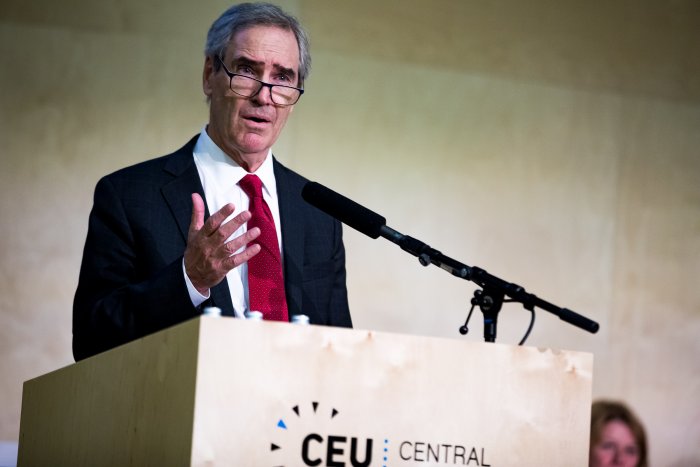CEU to establish satellite campus in Vienna

CEU
The Central European University (CEU) and the City of Vienna announced negotiations Monday on a memorandum of understanding that would enable CEU to open a satellite campus site in Vienna. The new CEU facility would complement its home campus in Budapest and its American site at Bard College in New York State.
CEU President and Rector Michael Ignatieff.
On the basis of the MoU, the Otto Wagner area of Vienna will be examined as a possible location. The MoU commits CEU and Vienna to conclude a 99-year lease, making for a long-term commitment to the city, says a press release sent to the Budapest Business Journal.
“Vienna is a global hub for universities, companies and international organizations. Establishing a campus there will give CEU’s faculty and students exciting new opportunities. We look forward to working with the city and the Austrian government to make a CEU Vienna a reality,” said CEU President and Rector Michael Ignatieff.
“Even as we develop a CEU Vienna, Budapest will remain our home base,” Ignatieff stressed. “We are committed to resolving our long-term future in Budapest through the New York State-Government of Hungary draft agreement. We hope that the Hungarian government will sign and ratify it as soon as possible.”
“For Vienna as a university city, cooperation with the CEU offers the opportunity of the century,” commented Vienna Mayor Michael Häupl. “CEU is a symbol of the awakening in the Central and Eastern European EU member states, and with its social and humanities focus would complement the Viennese university landscape well.”
The agreement with Bard College last autumn was necessitated by controversial changes to Hungaryʼs Higher Education Law, approved last spring, specifying that any foreign-funded university institution in Hungary can only operate in the country once the government of the source country and Hungary have signed an intergovernmental agreement, while the legislation also specifies that the given university must have operations in its source country.
CEU, which was founded in 1991 by Hungarian-American philanthropist and financier George Soros, known as a strong critic of the present Hungarian government, claimed that it was specifically targeted by the change, triggering a series of mass protests in solidarity with the university last year.
In addition, the European Commission launched infringement proceedings against Hungary due to the amendments, a procedure that has moved as far as the EC referring Hungary to the Court of Justice of the European Union (CJEU) in December.
Central European University is a graduate institution, offering U.S.- and Hungarian-accredited master’s and doctoral programs in the social sciences and humanities, business and economics, environmental sciences and policy, law, network science, cognitive science and mathematics, says the press release. CEU’s graduates, who now number nearly 15,000, come from over 100 countries.
The university describes its mission as “to promote critical inquiry, world-class research and intensive teaching that promotes the values of an open society: free politics, free institutions and free minds,” the press release notes.
SUPPORT THE BUDAPEST BUSINESS JOURNAL
Producing journalism that is worthy of the name is a costly business. For 27 years, the publishers, editors and reporters of the Budapest Business Journal have striven to bring you business news that works, information that you can trust, that is factual, accurate and presented without fear or favor.
Newspaper organizations across the globe have struggled to find a business model that allows them to continue to excel, without compromising their ability to perform. Most recently, some have experimented with the idea of involving their most important stakeholders, their readers.
We would like to offer that same opportunity to our readers. We would like to invite you to help us deliver the quality business journalism you require. Hit our Support the BBJ button and you can choose the how much and how often you send us your contributions.







